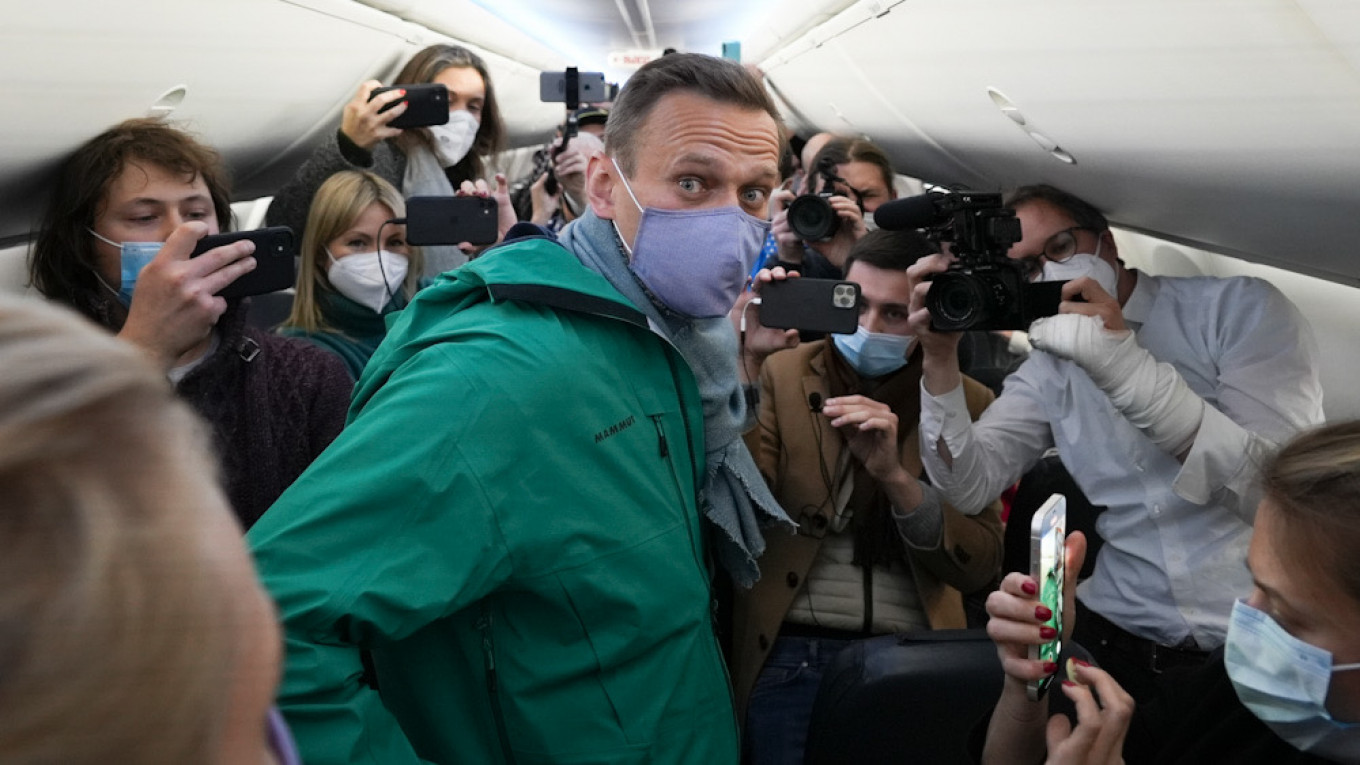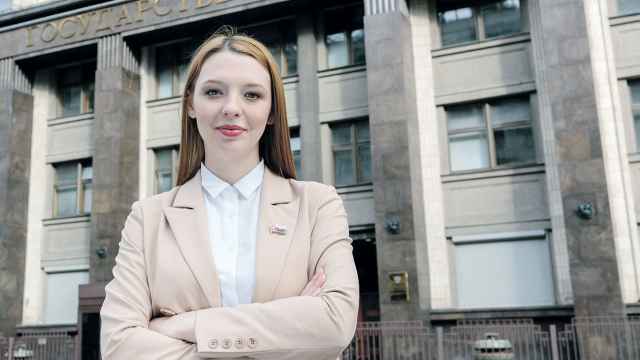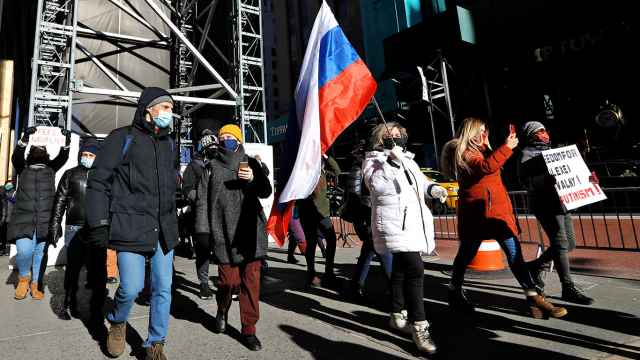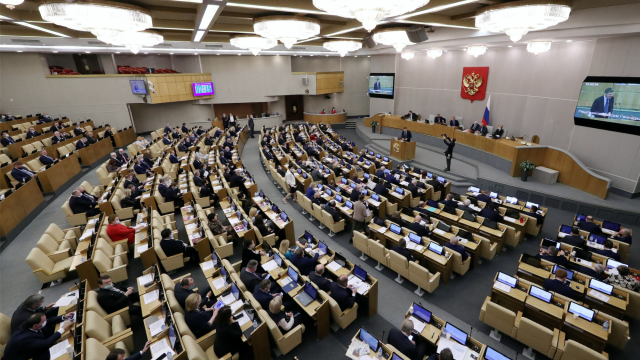The arrest and detention for thirty days of prominent opposition activist Alexei Navalny is threatening to upend Russian politics in an already fraught year that will include parliamentary elections in September.
Since rising to prominence for his anti-Kremlin activism, Navalny — who was poisoned by the nerve agent Novichok in August last year and had been recuperating in Germany until his return to Russia Sunday — has enjoyed only limited popular support. Data from the independent Levada Center pollster, suggests that only 20% of Russians approve of his activities.
Even so, Navalny’s charisma and longtime dominance of the opposition movement mean he has consistently been able to bring large numbers of supporters onto the streets. The opposition leader and his allies have already called for mass protests across the country on Saturday Jan. 23 shortly after his sentencing.
Navalny’s movement, consisting of a patchwork of interconnected organizations from the now-formally shuttered Anti-Corruption Fund to the unregistered Russia of the Future party, has enjoyed outsized significance as a result of its nationwide character.
Most major cities in Russia have a “Navalny Headquarters” of activists campaigning for local causes and against corruption, a hangover from his attempt to run for the presidency in 2018, when he was denied registration as a candidate.
Navalny’s team also runs a popular YouTube channel with almost five million subscribers posting exposes of corruption by Russia’s political and business elite.
Though the presence of local activists on the ground in Russia’s heartland could help boost the movement’s profile, some experts believe that Navalny’s arrest could lead to a broader crackdown on his supporters as Russia moves towards pivotal elections to its lower house of parliament, the State Duma, in the fall.
Navalny’s local and national organizations have been advocating a system of “Smart Voting,” whereby anti-Kremlin voters are encouraged to back the most viable non-United Russia candidate. The system’s modest successes in regional elections over the last two years lead some to believe that previously tolerant local authorities might crack down on activists ahead of the Duma vote.
“In regions where local authorities are tolerant, Navalny activists have been able to stage effective electoral campaigns,” said Maria Lipman, senior associate at The Program on New Approaches to Research and Security in Eurasia at George Washington University.
“I expect the degree of tolerance for local pro-Navalny groups to decline ahead of the Duma election, at the cost of increasingly blatant falsification.”
Charismatic leader
Much will depend on the outcome of a court hearing scheduled for Feb 2. If, as expected, Navalny is jailed for an extended period for violating the parole conditions of a suspended sentence for fraud whilst recuperating in Germany, his movement will lose the charismatic leader around which it is built.
While Navalny has been in and out of prison for short stints for much of the past decade, an extended spell in a remote prison colony — as happened to the now-exiled oligarch Mikhail Khodorkovsky — could effectively neutralise him as a political player.
“It all depends on what sort of communication endures between an imprisoned Navalny and his movement,” said Abbas Gallyamov, a political consultant and former Kremlin speechwriter.
“If the authorities completely isolate him, then his supporters’ movement will, at least for a time, be seriously weakened.”
Smart voting
With Russian politics in the coming year largely dominated by September’s State Duma vote, observers see the Navalny movement continuing to play a role in mobilizing the anti-Kremlin section of Russian society ahead of the parliamentary elections.
Navalny-affiliated candidates have been mostly barred from elections since the opposition leader came second in the 2013 Moscow mayoral election with 27% of the vote and almost forced incumbent Sergei Sobyanin into a runoff. Since then, the movement has shifted its focus toward exposing corruption and rallying support behind preferred candidates from the “systemic” opposition parties permitted to run.
“Navalny’s movement will certainly be a factor in the elections,” said Andrei Kolesnikov, head of the Russian Domestic Politics and Political Institutions Program at the Carnegie Moscow Center.
“Though it won’t be participating in the elections, it will serve as an instrument for discrediting United Russia and possibly as a mobilizing force behind protests.”
Crucially, the Smart Voting system — likely to be the Navalny movement’s primary means of influencing the September vote — is low-tech, consisting simply of electoral endorsements published on a central website.
Though the State Duma recently approved draconian new laws restricting electoral campaigning online in a move widely seen as targeting Smart Voting, it is difficult to see how access to the website could be effectively blocked in a country where VPN use is widespread.
To most experts, the bare bones nature of the Navalny operation is what will keep the movement in contention as the Duma elections approach, notwithstanding the threat of targeted repression from the state.
“Given the organizational infrastructure that Navalny has built up over the last few years, it is likely that the Smart Voting operation can continue with him behind bars,” said Ben Noble, a lecturer in Russian politics at University College London.
“However, the authorities know this and may crack down even further on Navalny’s team to hamper their activities. It remains to be seen how Navalny’s detention will influence voter mobilization and sentiment.”
A Message from The Moscow Times:
Dear readers,
We are facing unprecedented challenges. Russia's Prosecutor General's Office has designated The Moscow Times as an "undesirable" organization, criminalizing our work and putting our staff at risk of prosecution. This follows our earlier unjust labeling as a "foreign agent."
These actions are direct attempts to silence independent journalism in Russia. The authorities claim our work "discredits the decisions of the Russian leadership." We see things differently: we strive to provide accurate, unbiased reporting on Russia.
We, the journalists of The Moscow Times, refuse to be silenced. But to continue our work, we need your help.
Your support, no matter how small, makes a world of difference. If you can, please support us monthly starting from just $2. It's quick to set up, and every contribution makes a significant impact.
By supporting The Moscow Times, you're defending open, independent journalism in the face of repression. Thank you for standing with us.
Remind me later.







